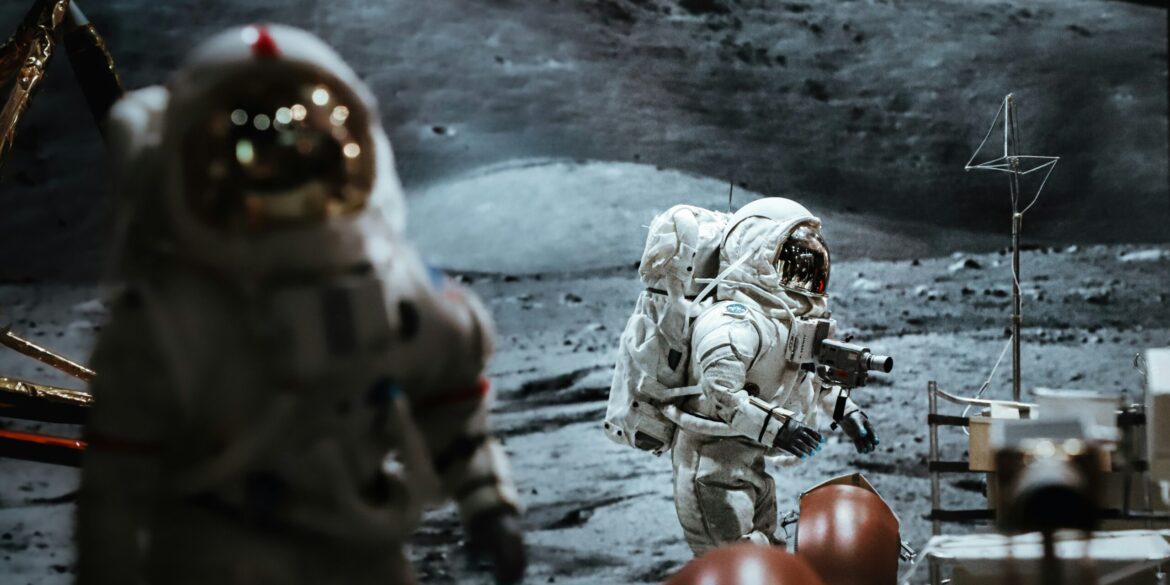Amid growing concerns that China may land humans on the Moon before the United States, NASA’s interim administrator, Sean Duffy, expressed frustration and reaffirmed the agency’s commitment to its lunar ambitions. During an all-hands meeting with NASA employees, Duffy directly addressed recent discussions and speculation surrounding the competitive nature of the space race. He strongly rejected the idea that the U.S. could be outpaced by another nation, particularly China, in landing astronauts on the Moon. Duffy called the suggestion that NASA might be beaten to the lunar surface “shade thrown on all of NASA,” emphasizing the agency’s resolve to achieve its lunar goals as part of the Artemis program.
NASA’s Artemis program, which aims to return humans to the Moon for the first time in over 50 years, is a cornerstone of the agency’s long-term space exploration strategy. The Artemis mission’s goal is to land “the first woman and the next man” on the lunar surface, and it’s not only focused on returning astronauts but also on laying the groundwork for future missions, including human exploration of Mars. Duffy’s remarks come at a time when space exploration has gained heightened global attention, and other countries, most notably China, have made significant strides in developing their own ambitious space programs. The competition has sparked concerns about the U.S. maintaining its leadership role in space exploration.
In his address to NASA employees, Duffy made it clear that despite the competition, NASA’s determination to succeed with the Artemis program remains strong. He reassured the workforce that the agency’s plans for lunar exploration are on track, with the first Artemis mission scheduled to launch in the near future. The program’s focus on sustainable lunar exploration is designed to go beyond a one-off landing, establishing a permanent human presence on the Moon and facilitating long-term space exploration goals.
Duffy’s comments also reflect the larger geopolitical context in which the modern space race is taking place. Over the past several years, China has made significant progress in its space program, successfully landing unmanned rovers on the Moon and Mars, launching ambitious missions, and even sending astronauts to low Earth orbit. These achievements have raised questions about the U.S.’s continued dominance in space exploration, prompting some to speculate that China could overtake the U.S. in terms of landing humans on the Moon.
However, Duffy made it clear that NASA is undeterred by these concerns. He pointed to the historical achievements of NASA, particularly the Apollo missions of the 1960s and 1970s, which successfully landed astronauts on the Moon and returned them safely to Earth. He stressed that the agency’s decades of experience, along with its unparalleled technical expertise and infrastructure, continue to position NASA as the leader in space exploration. Moreover, he emphasized that the Artemis program is not just about landing on the Moon but also about advancing human spaceflight capabilities and ensuring that the U.S. retains its position at the forefront of space exploration for the next generation.
The growing competition in space exploration is pushing countries around the world, including the U.S., to accelerate their plans. Duffy acknowledged the significance of global space achievements, including China’s advancements, but reminded the NASA team that the U.S. has always been a leader in space and continues to push the boundaries of what’s possible. He reassured the employees that while the race to the Moon may be intensifying, NASA’s plans and commitment to space exploration remain as strong as ever.
In the broader context, Duffy’s response highlights the ongoing tension between space agencies worldwide as nations vie for dominance in the new space age. While much of the conversation has traditionally been about technological innovation and scientific exploration, it is clear that there is also a geopolitical element to the space race. The U.S. government has made it clear that maintaining leadership in space is critical, not only for national security but also for the future of global collaboration in space research.
Ultimately, Duffy’s remarks serve to reinforce NASA’s dedication to its Artemis mission and to assure the public and international community that the U.S. remains a dominant force in space exploration. While challenges remain, particularly with increased competition from countries like China, NASA’s commitment to returning humans to the Moon and continuing its pioneering work in space remains steadfast. The Artemis program is seen as a vital step in ensuring that the U.S. leads the way in the next era of space exploration, and Duffy’s response is a clear signal that NASA is not backing down from its mission.

